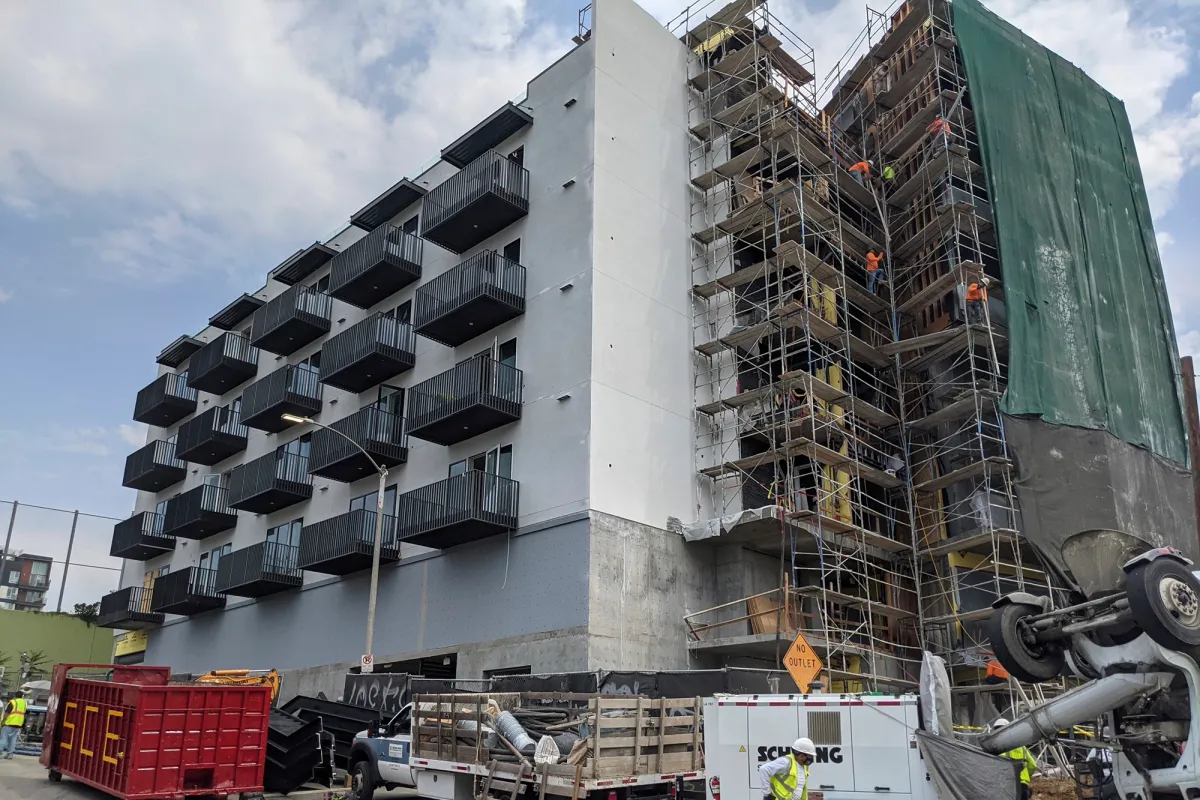A homeowner in East Palo Alto has filed a federal lawsuit challenging California’s inclusionary zoning laws, arguing they violate constitutional protections in light of a recent U.S. Supreme Court ruling.
Under local ordinances like the one in East Palo Alto—and in 149 cities and counties across California—developers of new housing must either designate a portion of their units as affordable or pay steep fees to support affordable housing programs. These rules are among the most widely used housing affordability tools in the state.
But now, their legal foundation is being questioned.
From Family Home to Federal Court
Wesley Yu, a local homeowner and father, filed the lawsuit after planning to build a home and backyard guest house for his extended family. The city told him he would need to either offer one of the units at below-market rates or pay $54,891 into its affordable housing fund.
Yu’s legal team, backed by the libertarian-leaning Pacific Legal Foundation, is leaning on a 2024 Supreme Court decision involving a similar California case. In that ruling, the court sided with George Sheetz, who argued that El Dorado County’s $23,420 traffic impact fee for his home was unconstitutional under the Fifth Amendment, which limits how and when governments can demand property or money from private citizens.
The court ruled that if a government wants to impose conditions on a building permit, those conditions must be directly related and proportionate to the development’s actual impact. Now, Yu’s lawyers argue the same standard should apply to affordable housing mandates.
“This Is Extortion”
David Deerson, Yu’s lead attorney, said the city’s requirement lacks a clear connection to his client’s small residential project.
“New residential development doesn’t have a negative impact on housing affordability. If anything, it has a positive impact,” Deerson said, pointing to studies showing that more market-rate housing helps reduce rents overall.
California courts have traditionally treated inclusionary zoning as a standard land-use restriction, not an unconstitutional “exaction.” In 2015, the state Supreme Court upheld these rules, and the U.S. Supreme Court declined to review the decision—leaving the policy intact.
But legal observers say that precedent may be vulnerable.
“They can always change their mind,” said Mike Rawson, director of litigation at the Public Interest Law Project, which supports inclusionary zoning. “I don’t see a basis for it, though obviously that doesn’t necessarily stop them.”
National Implications
The lawsuit’s outcome could reshape affordable housing policies nationwide, especially as similar challenges are mounting in Denver, Colorado and Teton County, Wyoming.
If the Supreme Court eventually takes up the issue, it would dive into one of the most divisive debates in housing policy. Inclusionary zoning programs are credited with adding affordable housing options without taxpayer dollars and with promoting economic and racial integration. But critics argue the rules can stifle housing development, driving up overall costs and limiting supply.
While courts will decide the issue based on constitutional principles—not policy outcomes—those outcomes may be just as significant. For advocates like Deerson, it’s not just about legality.
“In addition to being illegal, I think that these inclusionary zoning policies are also frankly stupid,” he said.













Leave a Reply